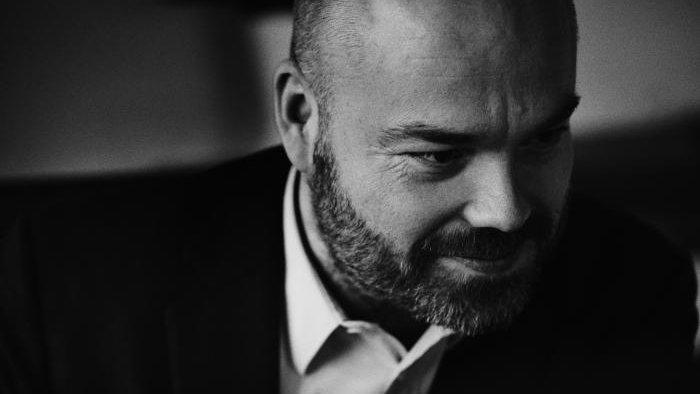Sri Lanka attacks: Eight Britons killed in explosions
- Published
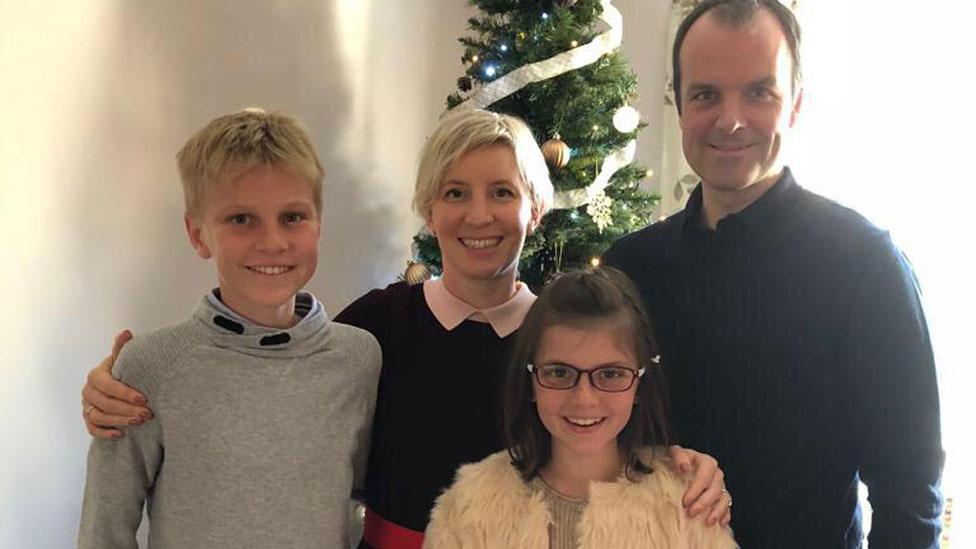
Anita Nicholson and her son Alex, 14, and daughter Annabel, 11, died in the Shangri-La hotel bombing
Eight British citizens are among the hundreds killed in explosions in Sri Lanka on Easter Sunday, the UK's High Commissioner to Sri Lanka has said.
They include Anita Nicholson, 42, her 14-year-old son Alex and her 11-year-old daughter Annabel.
Mrs Nicholson's husband Ben survived and paid tribute to his "wonderful" wife and their "amazing, intelligent, talented and thoughtful children".
Police say at least 290 people were killed in eight blasts in the country.
Mr Nicholson said his family were killed at a table in the restaurant of the Shangri-La Hotel, in the Sri Lankan capital Colombo, while they were on holiday.
He said he was "deeply distressed" at his loss but "mercifully, all three of them died instantly and with no pain or suffering".
He added that his wife "was a wonderful, perfect wife and a brilliant, loving and inspirational mother to our two wonderful children".
"Alex and Annabel were the most amazing, intelligent, talented and thoughtful children, and Anita and I were immensely proud of them both and looking forward to seeing them develop into adulthood.
"They shared with their mother the priceless ability to light up any room they entered and bring joy to the lives of all they came into contact with."
He thanked the medical teams in Colombo and the Sri Lankan people he had encountered since.
A further 500 people were injured in the blasts - but the UK's High Commissioner, James Dauris, said there were no Britons with serious injuries.
Officials in Sri Lanka believe at least 35 foreign nationals are among the dead.
Mr Dauris said: "We know there are a small number of foreign nationals who are unaccounted for. We don't know what the nationality of those people is."
Deadly explosions strike across Sri Lanka
Danish, Indian, Turkish and Dutch citizens are also among those known to have died.
Mr Dauris urged those still in the country to contact relatives and to follow instructions from local authorities.
In the capital Colombo, St Anthony's Shrine and the Cinnamon Grand, Shangri-La and Kingsbury hotels were targeted.
There were also explosions at a hotel near Dehiwala zoo and in the residential district of Dematagoda.
Further blasts took place in St Sebastian's Church in Negombo, a town approximately 20 miles north of Colombo, and at Zion Church in Batticaloa, on the east coast.
Manisha Gunasekera, Sri Lanka's High Commissioner, told the BBC that the large Sri Lankan community in the UK was "very concerned".
The Queen has offered her condolences to Sri Lanka's president, saying her thoughts and prayers were with all Sri Lankans.
She said: "Prince Philip and I were deeply saddened to learn of the attacks in Sri Lanka yesterday and send our condolences to the families and friends of those who have lost their lives".
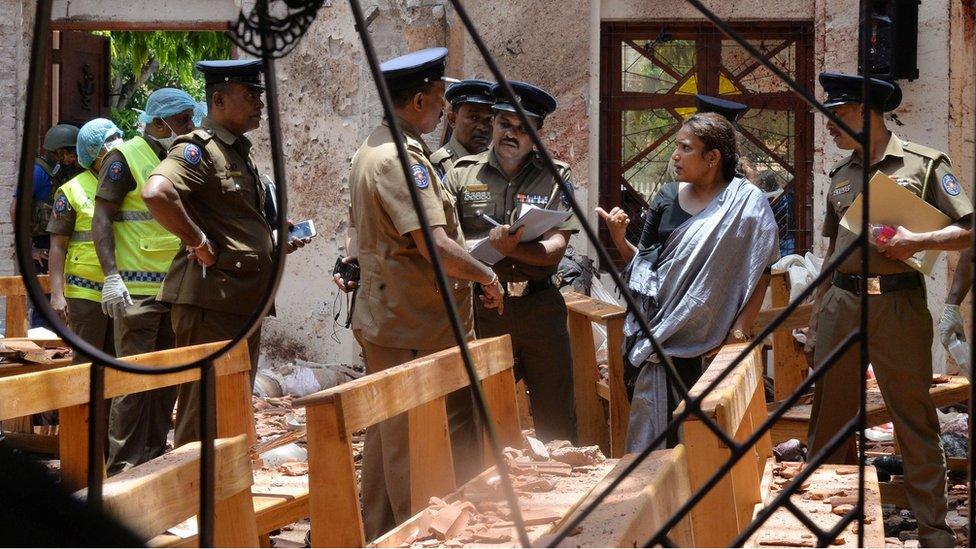
St Sebastian's Church in Negombo was severely damaged
Kieran Arasaratnam, a professor at Imperial College London, was on his way to the breakfast room in the Shangri-La hotel when he heard the blast.
He told the BBC he saw a young child, aged about eight or nine, being carried to an ambulance, and all around him, "everyone's just running in panic".
"The military was coming in. It's just total chaos. So I then just literally ran out and then I looked to the room on the right and there's blood everywhere."
'Lucky to be alive'
Tourist Marisa Keller, from London, was also staying at the Shangri-La but wasn't in the hotel when it was attacked. She said she felt "lucky to be alive".
"There were lots of bodies, blood, ambulances, police. Swat teams were sent in.
"One side of the hotel was blocked off. They were letting people back in because of the hot sun," she said.
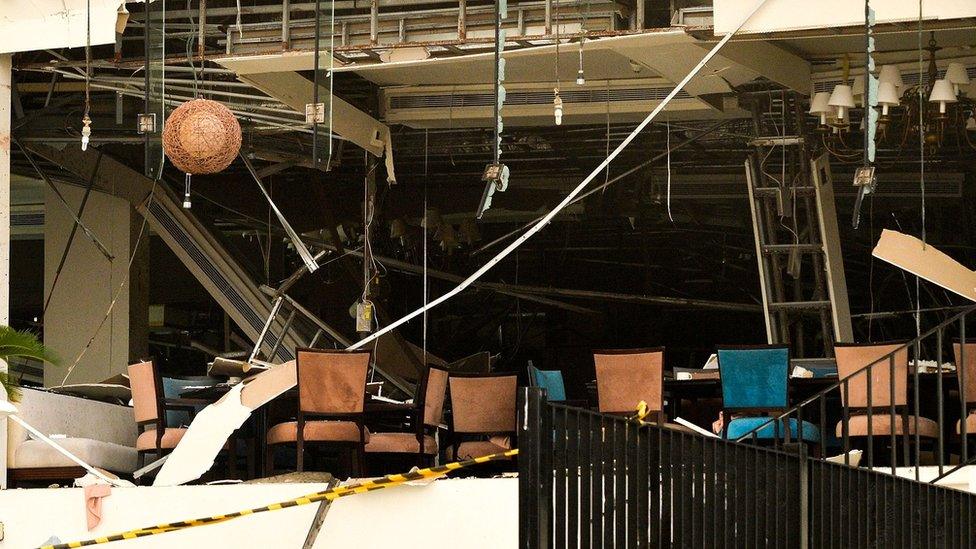
One of the explosions hit the Kingsbury Hotel in Colombo
Julian Emmanuel and his family, from Surrey, were staying at the Cinnamon Grand when they were woken up by the explosion.
"There were ambulances, fire crews, police sirens," he told the BBC.
"I came out of the room to see what's happening, we were ushered downstairs.
"We were told there had been a bomb. Staff said some people were killed. One member of staff told me it was a suicide bomber."
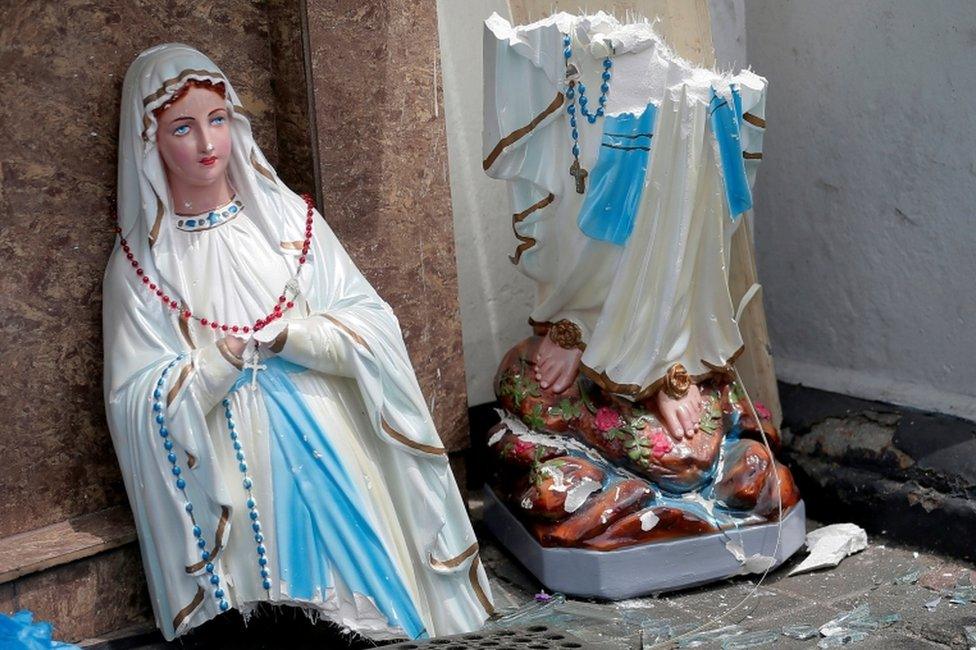
A statue of the Virgin Mary, broken in St Anthony's Shrine
The Sri Lankan government said on Monday that the bombings were carried out with the support of an international network.
It has blamed a little-known local jihadist group, National Thowheed Jamath, although no-one has yet admitted carrying out the attacks.
Police have arrested 24 people in a series of raids.
Archbishop of Canterbury Justin Welby has condemned the attacks as "utterly despicable destruction" during his Easter address at Canterbury Cathedral.
Prime Minister Theresa May said the killings were "truly appalling" and "no-one should ever have to practise their faith in fear."
Labour leader Jeremy Corbyn said: "I stand with the victims, their families, the people of Sri Lanka and Christians around the world. We must defeat this hatred with unity, love and respect."

The Foreign Office has directed British citizens to two helplines:
Those in Sri Lanka and can call the Embassy in Colombo: +94 11 5390639
Those in the UK who are concerned for British friends or family in Sri Lanka can call: 020 7008 1500

Are you in Sri Lanka? Have you been affected by the attacks? Only if it is safe to do so, please contact haveyoursay@bbc.co.uk, external
Please include a contact number if you are willing to speak to a BBC journalist. You can also contact us in the following ways:
WhatsApp: +44 7555 173285
Tweet: @BBC_HaveYourSay, external
Send pictures/video to yourpics@bbc.co.uk, external
Text an SMS or MMS to 61124 or +44 7624 800 100
Please read our terms of use and privacy policy
- Published22 April 2019
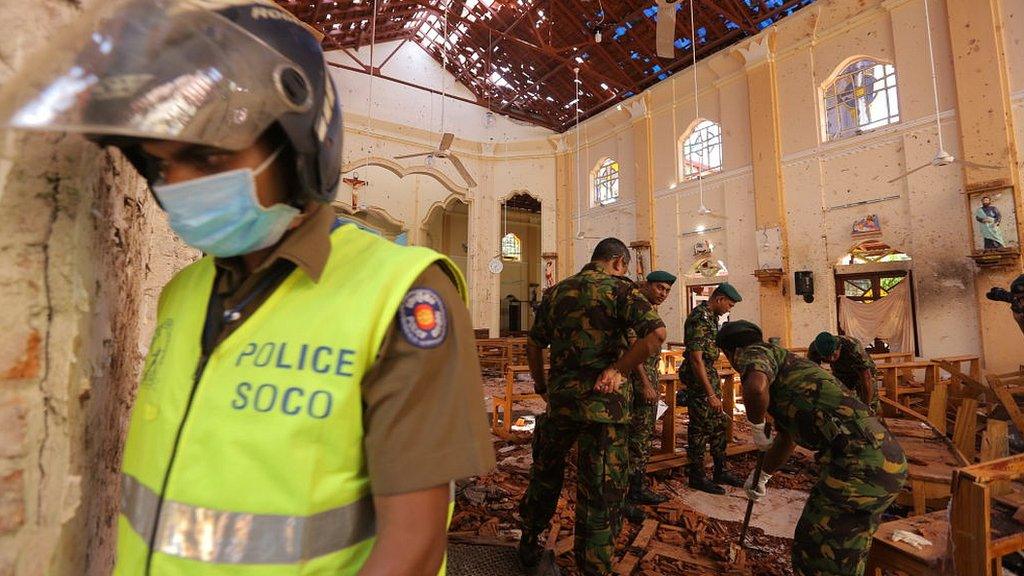
- Published26 April 2019
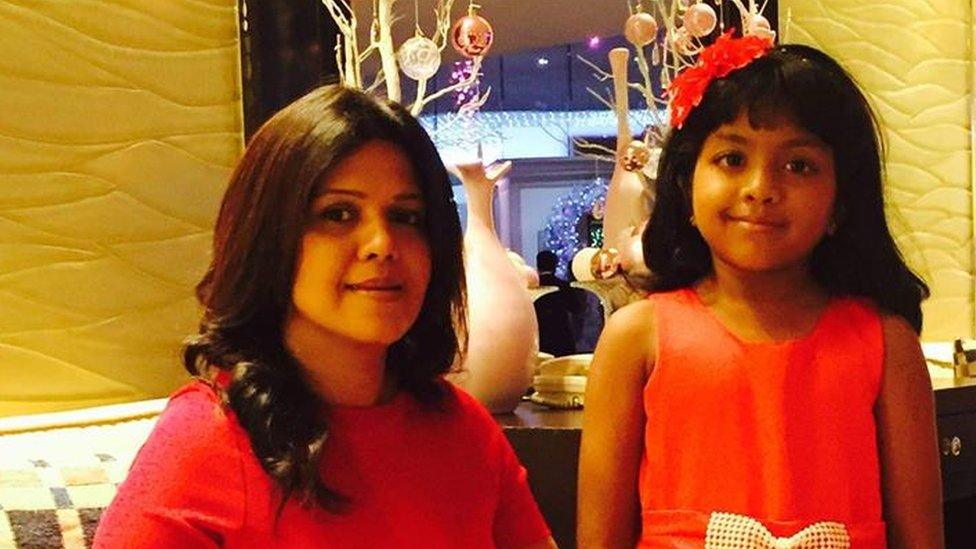
- Published22 April 2019
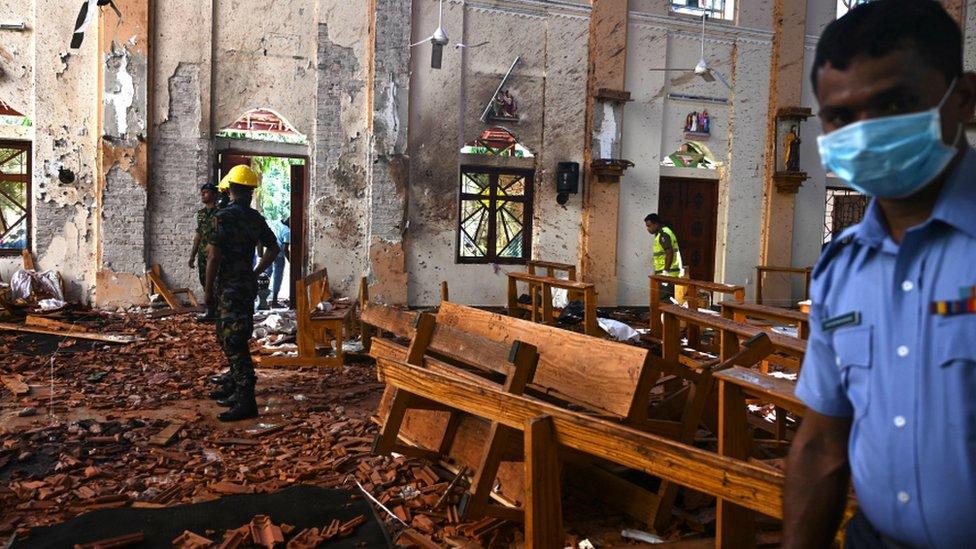
- Published21 April 2019
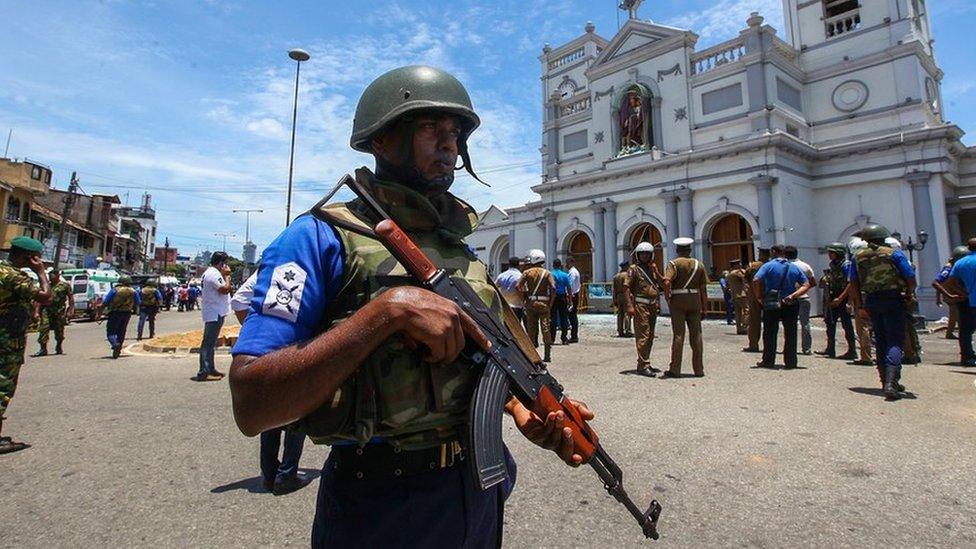
- Published21 April 2019
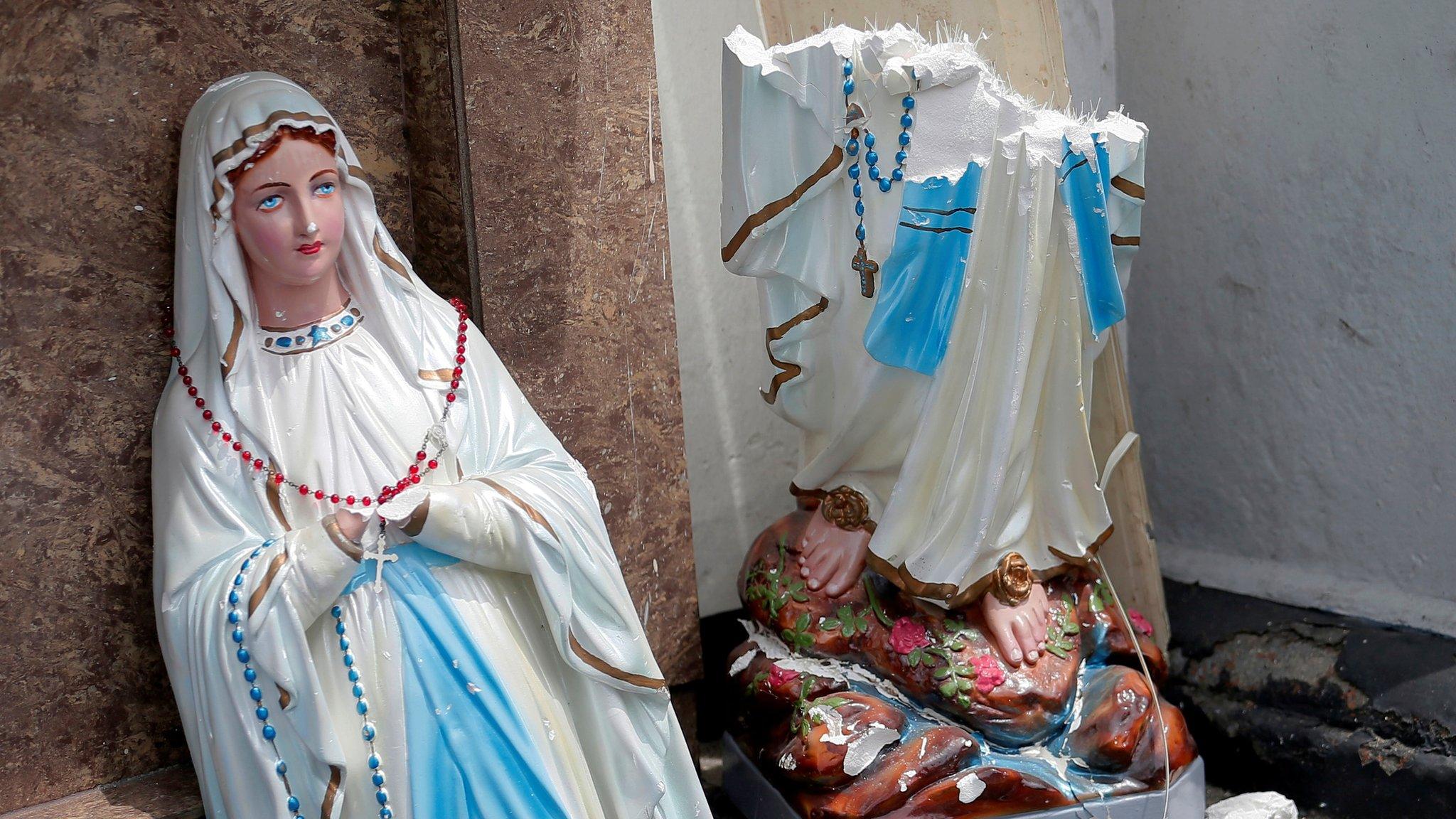
- Published22 April 2019
